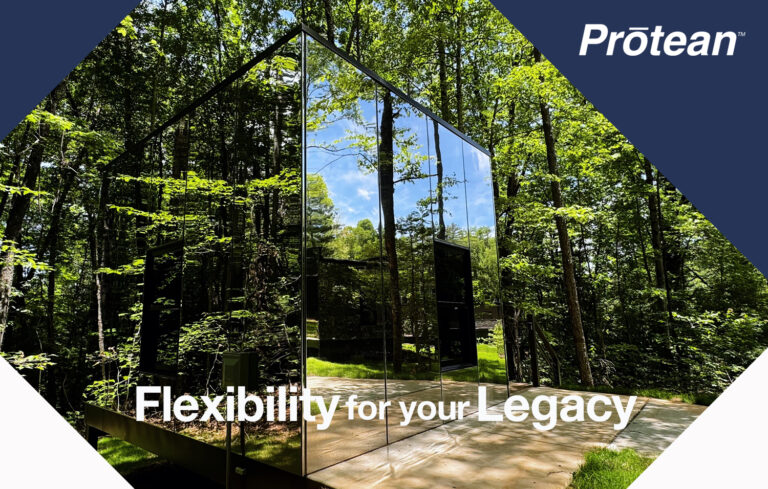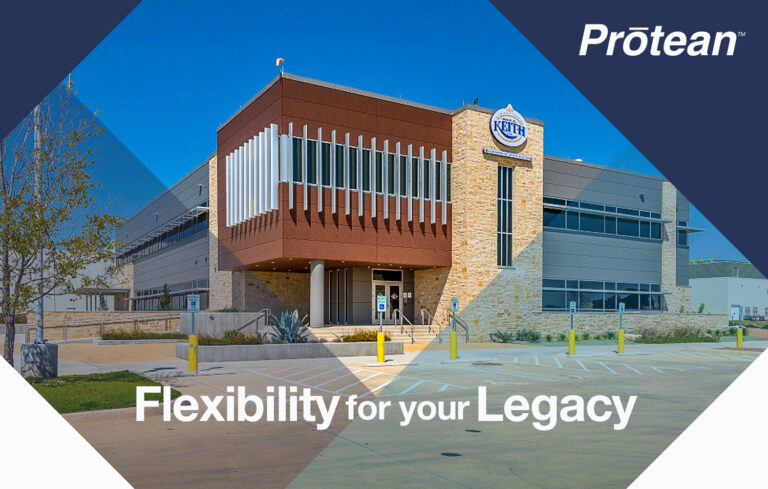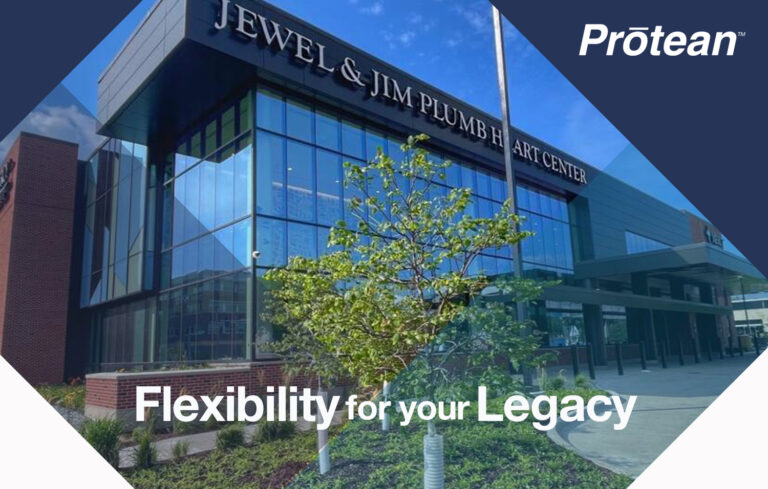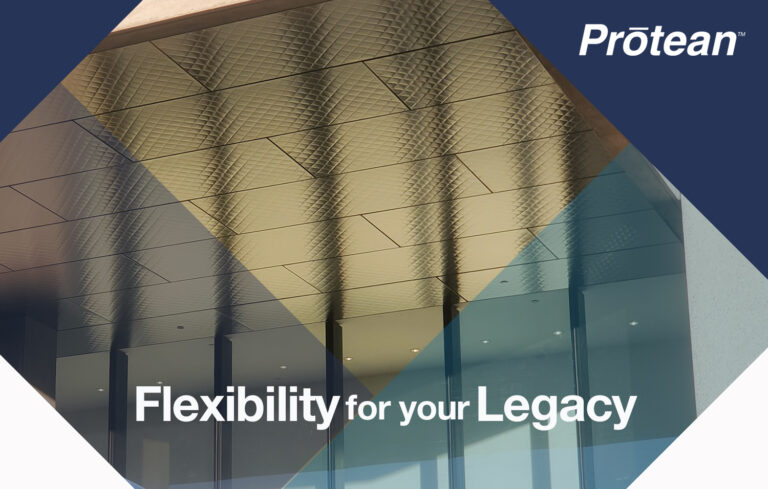If you have limited your use of insulated metal panels (IMP’s) to warehouses and cold storage units, Protean’s new testing protocol has opened the door to increased design flexibility with highly sustainable, fire-safe panels.
Based upon recent NFPA-285 testing results, Protean has expanded the design options available for architects with IMP’s. Protean FM-200 (dry joint) and FM-100 (caulk joint) panels have been tested to NFPA-285 standards that allow construction with 1” to 4” foam core, with aluminum or galvanized skins, with or without weather barrier and with or without sealants. These options, plus the design flexibility referenced below, puts the power of design in the hands of the architect compared to the confines of design with leading foam-in-place IMP’s.
The results of our testing will allow architects to design with the following considerations:
- Increased Design Flexibility: Are you tired of limiting your IMP designs to long, narrow modules? Protean panels can be any size up to 56” x 192”. Panels can be bent, trapezoidal, curved and/or a variety of geometric configurations. Design considerations are significantly greater than with a roll-formed, foam-in-place IMP systems. Protean provides these configurations with no customization charges, so you can have the look of ACM with the insulation included for lower cost.
- Enhanced Sustainability: Protean panels have been tested up to 4-inches thick, versus industry standard 2-inch modules. With an R-value of 7 per inch, the increased insulation value is significant. Our standard construction is aluminum skins, which have much higher recycled content than industry standard, galvanized panels. And construction of Protean panels allows for field disassembly at end of life for skins to go directly into the recycling stream.
- Reduced Costs: NFPA-285 approved wall systems with Protean IMP’s can be lower cost when compared to ACM or other metal panel systems. Protean’s test protocols allow for panel installation direct to studs over gyp, eliminating the need to install rainscreen carrier systems, mineral wool or continuous insulation systems, and hat channels or other firring for mounting. The result is fewer trips around the building façade by the installer, resulting in significantly lower installation and total wall envelope expense.
“We set out to design a wall on the edge of failure for NFPA-285 testing, because we knew it would allow greater flexibility if we passed,” said Troy Ethen, President & Principal of Protean. The wall construction and materials used were unlike traditional IMP test walls. According to the test technician at “The wall construction was different. This is the first like it that I have observed. I expected worse. I think this is a great result.”
Protean Construction Products is focused on making buildings and relationships that last. They have been a leader in the manufacturing architectural metal wall panel systems since 1989. They offer a wide variety of standard honeycomb, plate, foam insulated, MCM and column cover systems which can be customized to specifically meet the design intent of the architect at a cost owners need to meet their budget.







